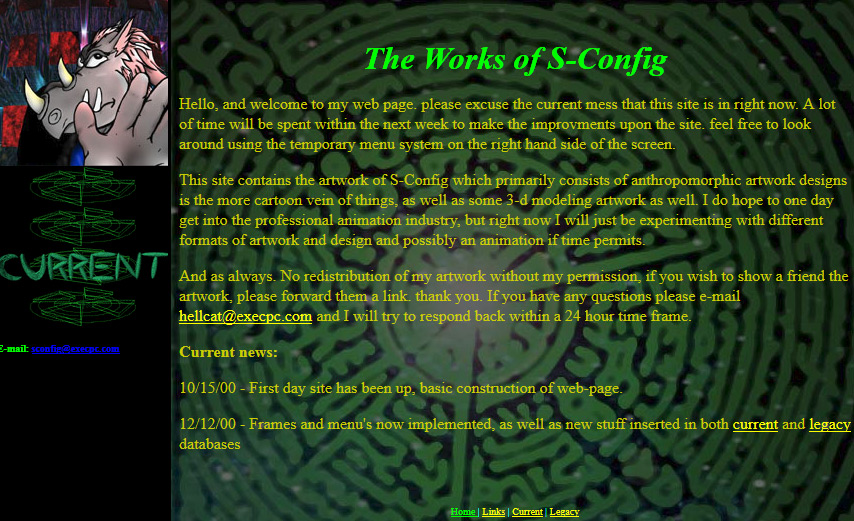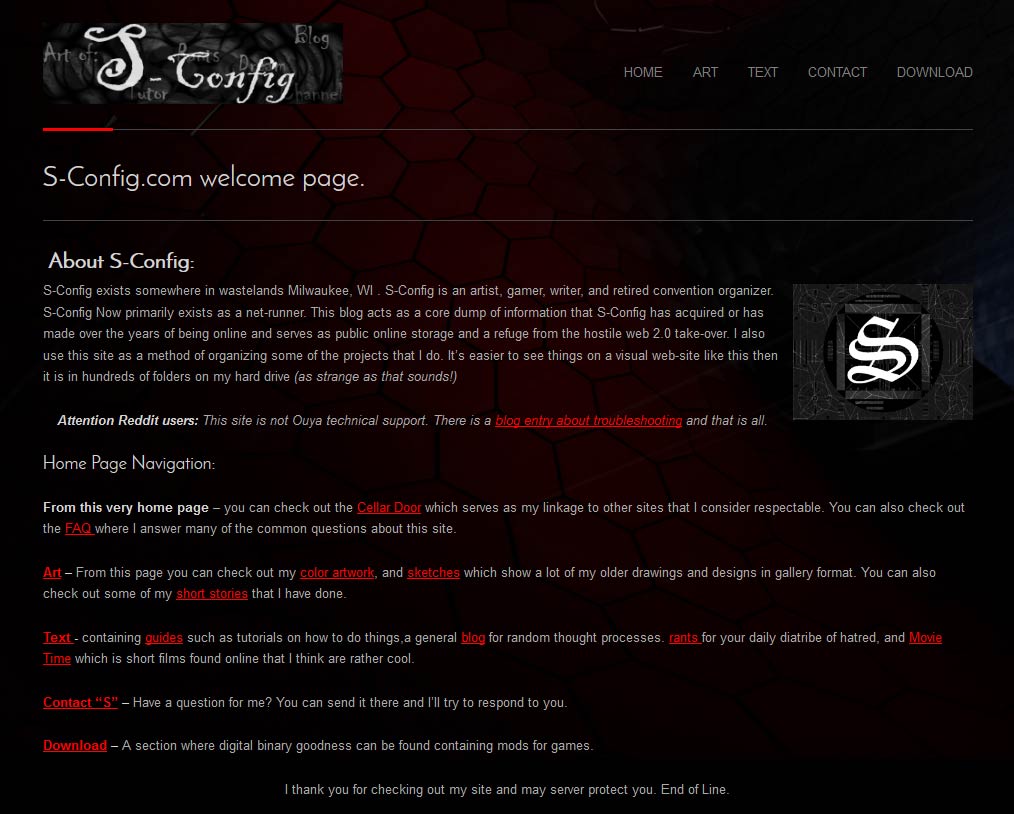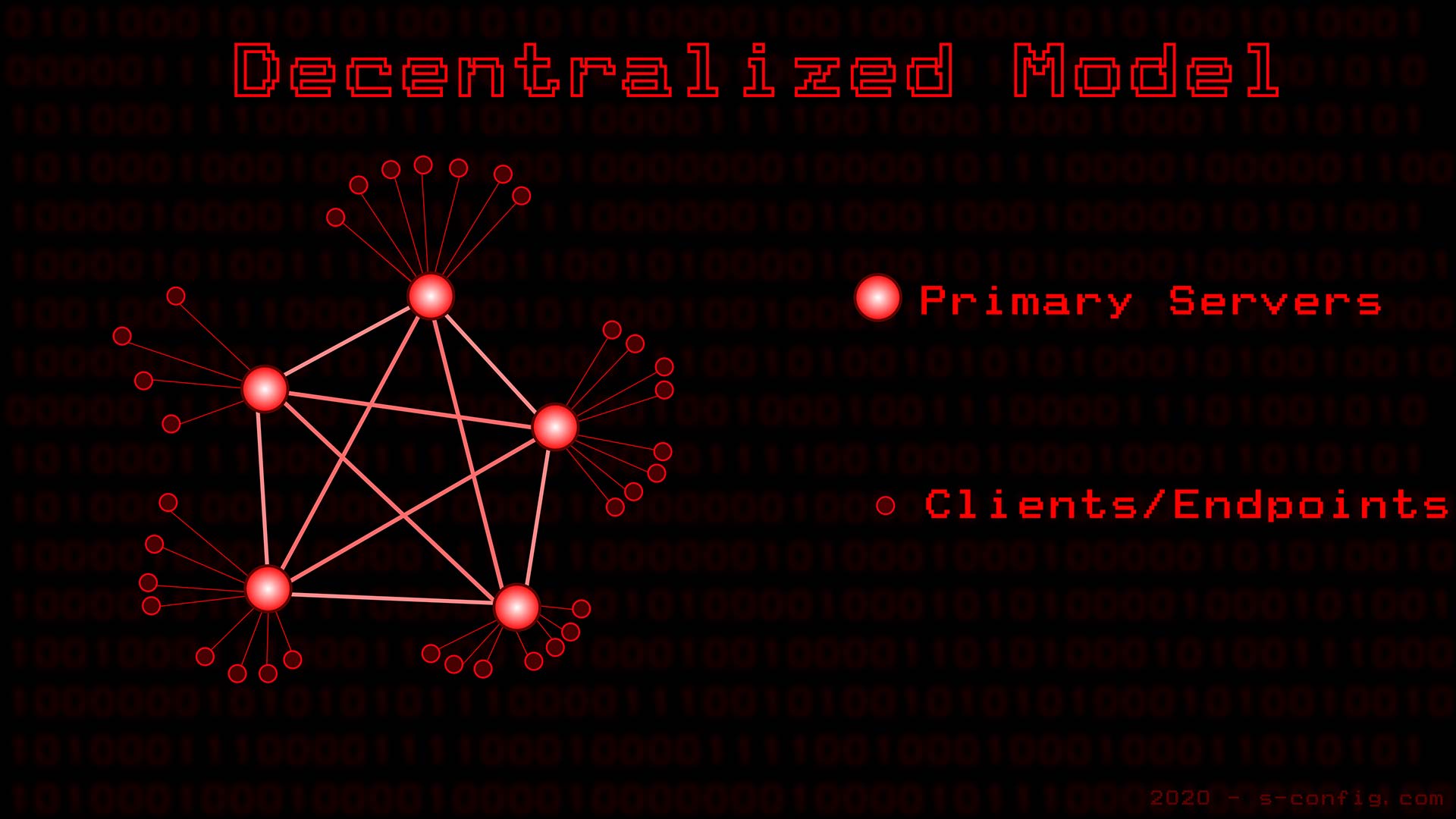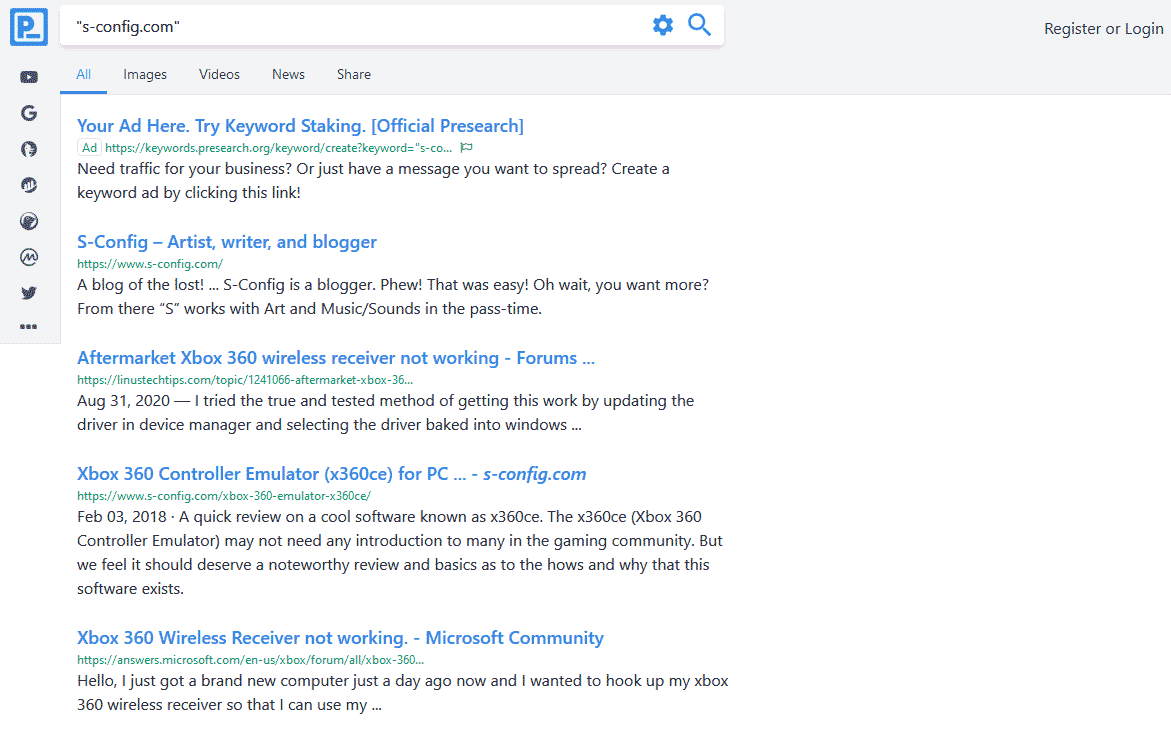What is "Web 3.0"
Sometimes it's also referred to as "Web3." This subject was actually hard to really pin down. As we are living in the screaming '20s where the world is fast-tracking itself for CostCo levels of stupid it's impossible to really find a pure example of Web 3.0. So, the quick and dirty answer to how we feel about Web 3.0?
We've come to the conclusion that Web3 or Web 3.0 is pretty much unproven marketing hype and vaporware made up my crypto-bros that want to put a price tag on the internet.
Read on if you wish to hear our diatribes.
Whoa-whoa buddy! What the hell happened to all of the other webs?!?
They/We still exist despite there being some who believe we are dated and irrelevant. You are in fact reading this article on what is described as a Web 2.0 interface. But lets go through each of the versions of "Web" and from here on out when we say the "Web" and version this refers to the overall design of the website and/or how the user interacts with it. Not necessarily the protocols deployed such as HTTPS/SSL that is used here for security or http/3 which we implemented about a year ago. These web version standards even apply to other networks such as. Onion or Tor sites.
Web 1.0
Web 1.0 is the first iteration of the internet where generally it's a static .html page that required nothing more than a notepad to write and deploy. If you know your HTML code then you could put up a website. This was predominantly how a lot of your early days Angelfire and Geocities websites were designed back during the rise of the internet. Web 1.0 structure starts off reading hypertext that calls upon images and ends right there! All of the resources are on that site and do not cross-reference between others. It's the notion and thought process was to simply present data irrelevant to if it's accurate or trustworthy and simply walk away.

My very first website which was hosted on ExecPC back in y2k would be considered "Web 1.0." Although we used tricks such as DHTML for animations. It still adheres to Web 1.0's standard of being made in an editor (We think we used Dreamweaver back then) and there was no real way for a user to interact with the website and/or upload data to this website. Even the ability to contact sent the user off to their e-mail client instead of a contact form that you could fill out on the site. The page is static and only changes if we change the html code.
Web 2.0
Web 2.0 implements more modern technologies to accomplish the goal of being a two-way communication between its users and the website itself. By using programming languages such as PHP scripting to link to a series of databases that have the capability of storing text/images/videos/binaries from its end-users. Web 2.0 allows for dynamic content to be served instead of a single static page. Using other options such as CSS coding, and Javascript to graphically adapt a web page to the environment of the client be it desktop or mobile browsing.

This is what our website looked like in 2016, and although it has the aesthetic of a web 1.0 site and there is even static pages such as our download section. We have other sections that is dynamically generated such as our blog sections. And within blog articles like the one you are reading there is a comments section where you the end-user can leave text below. Because of this level of reader interaction, this describes us as web 2.0
Other Web 2.0 applications:
- Blogs
- Wiki's
- Video Content Sharing such as Vimeo, YouTube.
- Any form of social networking.
Podcasting is in theory in the web 2.0 territory as well, but we beg to differ on this as you could easily write a web 1.0 html document and simply link a mp3 outward just like one would link an image to be viewed. The only major difference is how the podcast is presented. When you load the page does it also load the player? Or do you click on the file and download it to launch in VLC or a similar player app?
Web 3.0 (At least the theory)
Now that we've talked about the previous iterations and versions of the web. We come up to the meat of the subject here. Which is web 3.0 or sometimes known as Web3. Web 3.0 presents the possibility of how the "internet moves forward" for lack of better terms by consolidating all information into a database that in theory cannot be owned by a single individual/company. If you go off f the wiki article about what web3 is it starts to read like this:
Web3 is an idea for a new iteration of the World Wide Web that incorporates decentralization based on blockchains

We should be paying more attention when they use the term 'decentralized' because as we explained each of the models of how the internet communicates decentralized does not necessarily mean an 'equal' internet. That under a Web 3.0 infrastructure the maintainers of the 'great internet database' would be a powerhouse like Google currently is with web 2.0. It basically means those who have staked (or given money to) this blockchain will be the ones determining what is correct. Thus, those who have not staked any money into the blockchain simply would not exist in the web 3.0 ecosphere. Or, at the very least the Etherium one envisioned by its creator. More on that in a bit.

When you add 'blockchain' into the mix there have been some incredibly bad actors that are in control of these types of systems. For example, going back to our Pre-Search review article that is a service that uses blockchain and quasi decentralized computing to copy/paste the hard work from other search engines into its own. With the only benefit of 'keyword staking' which is using Crypto Currency within this blockchain to make your data more relevant to the users on this search engine.
So think of it this way; Imagine having this blockchain run by individuals like Pre-Search Imagine typing in your favorite website but every time you click on a link or move from one DNS to another on your browser address bar Web3.0 instead takes you there your browser decided to take a pit-stop at an Ad-Sponsor that staked crypto on the Web 3.0 blockchain?

Of course, you cannot turn this 'ad feature' off because it's a part of the blockchain itself. You fundamentally have toll-booths on the information super highway! I'm sure there's some marketing "SEO genius" that's creaming their pants at the thought of what we just wrote but this is just one possibility of the kind of marketing shit-storm that web 3.0 can provide to us.
By adding all information into a blockchain you, therefore, assign a value to everything online. Which slides right into the next scene which is "picket fencing."
Where in order for you to even 'SEE' a certain website you must pay your way into it by inserting crypto into that token within the blockchain in order to access it. And those that are not a part of the Web 3.0 world that haven't paid into it such as web administration such as ourselves will just be simply excluded from the blockchain, unsearchable, un-indexable, and irrelevant. Also, sites could demand money from their readers to even be let in bringing back the dark ages of magazine subscriptions but for websites! It's happening on Web 2.0 with Google hiding certain sites while promoting others. So Web 3.0 we feel will do nothing to really solve those issues.
We should be writing Black Mirror episodes. But instead, we just run a simple blog. It's wasted potential we know!
Multidimensional Web 3.0?
Although the appeal of a blockchain is its transparency, if someone attempts to alter the database within the blockchain to subvert people's websites the others within that decentralized network will also know it happened. Thus, it should stop the "toll-booth scenario" that we described above. But, that's if everyone uses one blockchain! If you've logged into something like Coinbase you will find out very quickly that is not the case. If everyone is using their own blockchain to index the internet and none of them can easily traverse one another to determine which is real versus fake. Is web 3.0 a better solution?
In order for a semantic web to really take hold and build that foundation of Web 3.0, You need to convince everyone in the world to give up on owning their own data and instead have the world submit to a database that indexes importance for you. Facebook and Twitter have done a banger job at this. And the blockchain community wants to do the same. But there's always going to be hold-outs. We've rejected protocols in the past when Google tried their own variant of this with their AMP project.
Privacy.
Sleaze bag investors would not be the worst of Web 3.0. It's privacy and the total abolishment of it. Because of the very nature that blockchains are designed. Nothing in the database is overwritten but instead simply appended onto itself. It means that nothing you do on Web 3.0 will ever be erased. There is no such thing as a 'takes down'. Where you as an internet user will be a token within the blockchain that interacts with other elements within it. Meaning your job can look at all of the things that you do on Web 3.0 and determine your entire life if you wanted to or not.
The blockchain is not necessarily anonymous. Especially when you start attaching real-world metadata to each of the tokens. And eventually, those investors will be bought out by a giant company for all of the data rights and we are back to an even worse, shit-filled internet.
A truly equal internet.
Web 3.0 advocates really try to promote hard with Web 3.0 is 'equality' which doesn't even exist! However, for those who want to join a truly equal internet? Then join ToR. Which is a distributed model network instead of decentralized meaning that no one really has the authority to kick you off of the onion network. And they don't have to mention blockchains like some marketing buzzword investor.
Now for those wondering why web 3.0 must be decentralized instead of distributed similarly to ToR? Because having absolute freedom means:
- Dealing with bad-actor sites - Child Porn, Assassination, Scam sites
- Dealing with bad thought sites - Because we can't have people think for themselves. They might overthrow governments! Or make free power. Scary stuff man!
The good news now!
Because the barrier of responsibility is gone this also means anyone can make a Tor site and assign a .onion address to themselves. No need for expensive ICANN or SSL services. Or staking and paying fees on expensive crypto in order to have a voice like what is described in the web 3.0 ecosphere.
A solution that requires no crypto.
So anyone with a Raspberry Pi can launch their own personal ToR website. And if it gets hacked.. well! it's a Raspberry Pi. If you run backups you're fine.
Final thoughts.
These are just the opinions of a rando-ass blogger what in the hell do we know?
We understand that everything mentioned about this "web 3.0" is speculation so far. We just fear that the information is just a commodity that you put a price tag on with blockchain staking. Some will exert their psychopathic tenancies of pumping and dumping on a blockchain plunging humanity into an information dark age while those who have caused this disaster would be living in a mansion like some criminal organization.
Web 3.0 in our opinion will not take us to a better internet. This reasoning is because currently, the internet works as it is. So when someone inserts a foreign idea that isn't proven, half-baked, and outright corrupt it's a natural response to reject it violently.
We are not the authority of the internet so our rejection of Web 3.0 will not change a thing. We don't see ourselves purchasing .forever or .x or .crypto domains anytime soon because there's simply no point. The browsers that support those technologies out of the box such as "brave" also support ToR networking as well. To us. Web 3 is certainly not going to hurt us in any way and if you want to invest in the blockchain go nuts. Perhaps you are seeing something we are not!
That's what server said
+++END OF LINE



Hello,
Interesting subject. I don't agree with what has been said, and to put things clear I am not in the US and I have tried what people call web 3 as a software developper, mainly in my case on the web.
First thing I would argue, where you are right, there is a lot of buzz and we have to look at the facts, what has been done until now? For this, recently I listened to a podcast by Charles Hoskinson about an article written by Moxie Marlinspike:
https://moxie.org/2022/01/07/web3-first-impressions.html
I highly recommend it as from my view point it sums up the main problems there are around "web 3".
About the buzz words you mentioned I totally agree, as I don't live in the US, the first time I didn't understand why people always use the word "inclusive". I believe it is a buzz word you have in the US which makes feel a project greater than it is. I agree it is a crappy marketing from my perspective.
About the privacy, I totally agree, "web 3.0" in its nature has zero privacy. Bitcoin for example is a totally open ledger, Ethereum, Cardano and many other blockchains as well. Yet, as a software developer, let's say I want to store data. I can encrypt it first, then share a password with other people and ask them to download something I shared and decrypt it with a shared password. I think about IPFS for example, where the data is open and unencrypted. Sharing password files with Bitwarden or KeepassXC works the same way. We encrypt a file and put it on a server where we can pull it from another device and decrypt it there with our password. Our data could be leaked from the public server but it wouldn't matter since our password database is protected with encryption. So I agree privacy can be a problem, but I disagree that it invalids principles related to web 3 as we can use other means to get privacy.
I see staking mainly as a financial aspect and the way security is done on proof of stake blockchains. I guess you refers to applications where you have to give money to get access to. Honestly I don't have an opinion on that, but I guess you are right asking money to let people access a basic service can be a high barrier of entry.
Great of Tor also, but I am sure with there is one blockchain which try to give us an incentive to share a part of our bandwidth to run a Tor server at home.
That said, for me the most important thing with web 3, is authentication, authorization and how we handle data. So with a wallet, we can use it as an authentication tool (signing data to attest we are what we are). We can also authorize someone based on that authentication process (decentralized in the sense that the wallet is the tool to sign or encrypt data. And the most important of these 3 core principles, data can be handled locally, shared with the peers we want to, and incentivize sharing. With IPFS the main problem being that there is no privacy and we have to encrypt data to share it and manage somehow a shared password. I think the principles and ideas behind web 3 are really great, and would invite you to try to pass through the marketing and the hype and see by yourself what this is about.
Hello, sorry for the delay. Life has a habit of taking you on a rollercoaster.
We have read Moxies Blog and their description of Web 1.0 and 2.0 I have to say we sincerely disagree with them. Since they have no comments section I'll just respond right here.
Are we the exception to this statement? We run our server and manage everything via shell. Admittedly it's an archaic way of administration. But it's one that we were taught (painfully) and we're the most comfortable with. Running our own server actually gave us greater flexibility than anything that was pre-packaged in a C-Panel environment.
That statement is utter bullshit in our opinion as this website has evolved from unencrypted HTTP to HTTPS with TLS 1.2 protocol as an absolute minimum for security. stacked onto alternative protocols such as Tor Network distribution and I could argue the HTTP protocol is moving along just fine. Perhaps from a pre-packaged application stance, it has all but frozen. But Web 3.0 can suffer from this as quickly as the previous iterations. I give you Odysee.org as a key example of the application stifling the protocol.
Centralized services can evolve if they want to.
I have taken your advice and legitimately am trying to use Web 3.0 services just to prove my statements wrong. Because when I published my article about Web 3.0 even we thought we were being far too harsh on the subject. But after looking at the top of Unstoppable domains. a web 3.0 DNS service. I find my cynicism and suspicion only being proven right. In fact, I've not adopted the habit where anytime someone even mentions the word 'blockchain' in their services that I have to go through their ToS first and foremost. Unstoppable domains are actually -very- stoppable because if you have to rely on a web 2.0 application to govern over the blockchain as a man in the middle then nothing is really solved.
Odysee confirmed my fears of the Web 3.0 eventually turning into a giant toll booth. Although there are very few videos on the platform that does that. There's a handful now where you have to pay crypto just to watch what is inside of the video. The only plus I gave to Odysee is that their ToS does not suck and it shockingly makes them less evil then YouTube! In which if we have to choose between lesser evils instead of a better future. It still equals a dystopian web.
If the most important aspect of web 3.0 is authentication is it really better than how we're handling data on this server? Once again, we realize we are the exception to the broad brush of no one wanting to administer their own servers. But we could simply move files out of the folder of my box and grant/deny access much faster than IFPS and do so without the need of loading a specialized blockchain application. We could simply remove a file and outside of a handful of people that downloaded said file that's it! Unless someone re-posts its dead!
Perhaps when weighing against the 3 core principles of authentication our views align more with centralization in a server I control versus a random peer network.
Anyhow, thanks for reading this article and responding. Take care out there.
- S